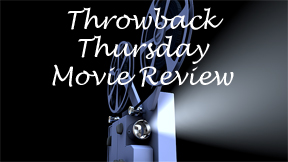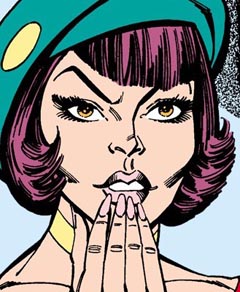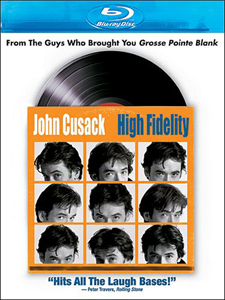When it came out, I underrated “High Fidelity” (2000) because it’s not as good as the 1995 novel by Nick Hornby. But like its fellow 2000 love-letter-to-music “Almost Famous,” it now stands as an unassailable classic – if you can accept the intense internal focus of Rob Gordon (John Cusack, also one of the four screenwriters). I can see how Gordon’s obsessive self-analysis could be off-putting to some viewers, especially since Cusack (and presumably Rob) is in his mid-30s — unlike, say, Dawson Leery.
If you accept the fourth-wall breaking of a man who refuses to grow up, though, “High Fidelity” is an all-time great movie about romantic love as filtered through the male mind.
Time capsule of music history
What I really love about director Stephen Frears’ film today is that it’s a time capsule of music history. Not of a type of music or era of music. Rather, it crystalizes how we experienced music fandom from the dawn of recorded songs up through the turn of the century.

“High Fidelity” (2000)
Director: Stephen Frears
Writers: Nick Hornby, D.V. DeVincentis, Steve Pink
Stars: John Cusack, Iben Hjejle, Todd Louiso
Rob has more records than Jason Lee’s “Mallrats” character has comic books. Rob no doubt still has a huge record collection if you extrapolate his character to present day. But back then, it was about the almost accidental accumulation that happens through the years; today, he’d be known as a vinyl collector.
2000 was at the tail end of the era of independent music stores where you’d chat with the clerks to get recommendations. (Jack Black’s Barry and Todd Louiso’s Dick join Rob at Championship Vinyl.) You’d make mix tapes (literally, tapes) for friends and prospective girlfriends. You’d go to shows at the club.
When Rob, Barry and Dick catch a show by Marie De Salle (Lisa Bonet), it’s not about her being the next big thing (although her cover of Peter Frampton’s “Baby, I Love Your Way” is indeed good). It’s about the experience of going to a club and seeing someone who makes good music. The three guys even idolize Marie a bit.
As with Rob’s self-centeredness (which is the point of his character, and can’t be avoided), some people might be turned off by the trio constantly making top-five lists. But Black in particular sells the heck out of this material. He had already made a mainstream splash with his trademark “chubby guy with boundless energy” shtick in “The Cable Guy” (1996), but his role as Barry leads in a straight line to his star turn in “School of Rock” (2003).
Rob juggles fantasy, reality
I love Barry, but I shouldn’t, since in his first line of dialog he rips Belle and Sebastian, one of my favorite bands, which Dick is spinning on the store’s stereo system. Like all male viewers are supposed to, I think of myself as Rob when watching the film, but that scene pulls me back to reality and reminds me I’m the Dick of the trio.

“High Fidelity” is about Rob’s gradual realization that he’s over the fantasy of possibilities and wants to settle down with someone he loves, Laura (Iben Hjejle). But there are some nicely observed moments amid the tour of Rob’s exes, from his harsh assessment that Sarah (Lili Taylor) represents all of desperate singledom to his breakthrough realization that Charlie (Catherine Zeta-Jones) is a shallow dilettante rather than an exotic free-thinker.
Even with Black stealing scenes, the comedy of “High Fidelity” is nicely low-key, reflecting universal thought processes. A hilarious sequence comes when Rob imagines how he’ll respond to rival Ian’s (Tim Robbins) request that he let Laura go and stop standing outside their window. His three imagined scenarios involve violence and a glorious victory by Rob; in reality, he wordlessly watches Ian walk out the shop’s door.
Oddly, “High Fidelity” doesn’t have a noteworthy soundtrack; Bob Dylan’s “Most of the Time” is an effective late-film pull, but there’s such a wide variety of tunes that the soundtrack doesn’t have an identity. Rob, Barry and Dick rarely analyze why they like what they like, and “High Fidelity” isn’t as focused on a style or era as, say, “Almost Famous” or “Garden State.”
But it nails the spirit of music nerdery, and it’s one of the best romance movies aimed squarely at guys. By those metrics, it’s a lock for all-time top five.

